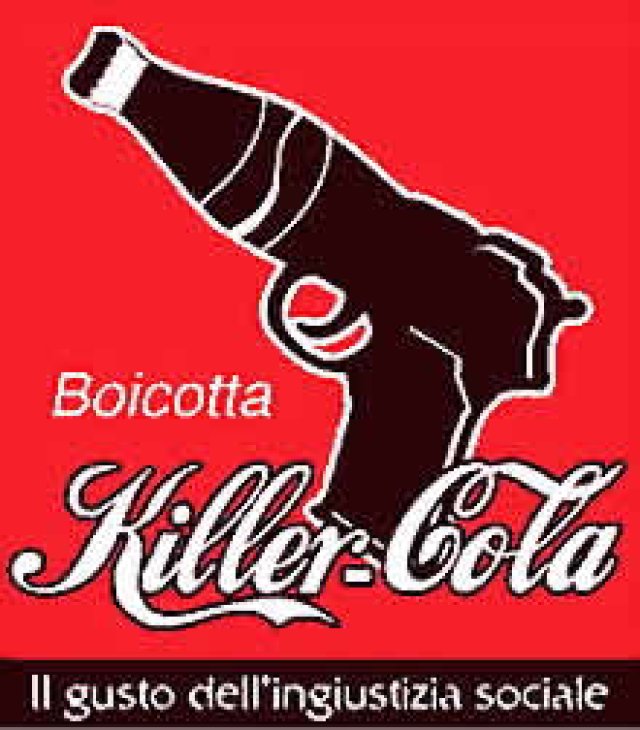
“The life of a trade unionist in Colombia is very difficult and complex”, visiting union leader Edgar Paez told Green Left Weekly.
Paez said 4000 unionists have been murdered in Colombia in 28 years. “Last year, 47 unionists were killed, 48 the year before. Union leaders need armed guards, bulletproof cars, camera surveillance and bulletproof windows on their offices.
“They lose the possibility of a normal family life.”
Paez, who is a national leader of food industry workers’ union Sinaltrainal, was in Australia to promote the campaign against Coca Cola, one of the worst anti-union offenders.
Paez’s meetings, organised by the Latin America Solidarity Network (Lasnet), also featured the documentary The Coca Cola Case, which outlined the many instances of murder, torture and kidnapping of union leaders at Coke’s Colombian bottling plants.
“The campaign demands Coca Cola compensate the victims, since they have benefitted from the crimes in Colombia”, Paez explained.
Despite the many murders of unionists at its plants, Coke tries to cry poor to justify not compensating victims of anti-union violence. However, The Coca Cola Case explains Coke pays US$2.6 million for a single 30 second advertisement during the US Superbowl.
Paez said: “We are campaigning for a boycott — if you love life, don’t drink Coke. We want to see Coke expelled from schools, sporting complexes, cultural centres and community spaces.”
The film mentions a US college where a student campaign won the removal of Coke from the campus — although it was later overturned under pressure from the corporation.
Some fascinating scenes from the film occur on college grounds, as pro and anti-Coke campaigners face off. A small “pro-Coke” rally featuring signs including “Fuck human rights” as students guzzle Coke and toast the “free market”.
The film shows the massive inequalities in Coke’s operations. It takes a Colombian Coke worker two years of 15-hour days to earn what the CEO of Coke is paid in just one hour.
Two Colombian Coke workers interviewed in the film (before security quickly intervened) explain they work from 6am until 9pm, earning a total of $15 — one dollar for every hour worked.
Paez said other concerns of the campaign include the theft of water, the violation of the rights and conditions of workers, and the violation of Colombian food sovereignty.
Some of the murdered unionists at Coke bottling plants were strong advocates of Colombians eating foods produced in Colombia, so that the profits don’t go to multinationals.
“All natural resources [in Colombia] are in the hands of multinationals”, Paez said. “Seven [US-run] military bases have been installed in the country to assist the multinationals. The US soldiers can come and go.
“This is a problem not only for Colombia’s sovereignty, but also for the stability of the continent. We believe all this militarisation is to guard the interests of the US in South American countries.”
Paez explained: “In Latin America, there are very important changes — Ecuador, Bolivia and Venezuela are very important for the continent, along with the creation of ALBA [the Bolivarian Alternative for Latin America].
“We think the response of the US is to extend its tentacles in the continent with militarisation.”
Paez said the many meetings in various cities across Australia have helped to relaunch the global campaign against Coca Cola — and all multinationals.
Paez pointed to an Australian connection. “Recently, we’ve campaigned around Australian-based BHP, which exploits our coal and nickel. It is immersed in violations of human rights and ecology.”
In contrast to the multinationals, Paez said: “Our demands are for democracy, sovereignty, family and well-being. The multinationals finance the same wars, benefit from the same conflicts, support the same politics.
“We need to recognise the common struggle of exploited communities globally, and link these struggles to fight the system of multinationals.”
[Visit Killercoke.org" for more information about the campaign against Coke’s crimes in Colombia.]